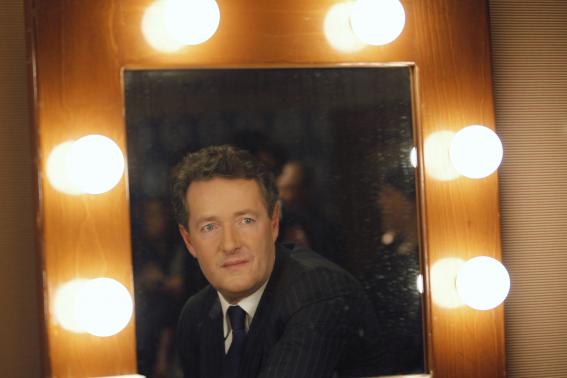
British police question CNN's Piers Morgan over phone-hacking
Kate Holton and Michael Holden

(Reuters) - Piers Morgan, one of the biggest names in British media and a CNN television host, has been questioned by London police in connection with allegations of phone-hacking at the Daily Mirror tabloid he used to edit.
Morgan, a former judge on "America's Got Talent" show who replaced Larry King on CNN in 2011, said in a statement on Thursday he had been interviewed by officers after voluntarily attending a police station in December.
The 48-year-old, who has always denied any involvement in phone hacking, was quizzed as part of wider investigations into illegal practices by journalists at Rupert Murdoch's now-defunct News of the World newspaper.
Trinity Mirror, which publishes the Mirror tabloid, declined to respond and CNN, which released the statement, declined to make any further comment.
Britain's newspaper industry was rocked in 2011 by the closure of Murdoch's best-selling 168-year-old Sunday tabloid after revelations some staff had regularly hacked into phones to generate front page scoops.
Rebekah Brooks and Andy Coulson, two former News of the World editors who are both close associates of Prime Minister David Cameron, are currently on trial in London accused of conspiracy to hack phones between 2000 and 2006.
Morgan edited the rival Daily Mirror from 1995 to 2004. He had also edited the News of the World from 1994 to 1995.
"A 48-year-old man, a journalist, was interviewed under caution on December 6, 2013 by officers from Operation Golding in connection with suspected conspiracy to intercept telephone voicemails," a spokesman for London's Metropolitan Police said.
"He was interviewed by appointment at a south London police station. He was not arrested."
Operation Golding is the inquiry into phone-hacking at the Mirror newspaper and was a spin-off from the long-running News of the World investigation.
"LITTLE TRICK"
Morgan had written in his published diaries about a "little trick" for eavesdropping on voicemails that he heard of as early as 2001, and in an interview with the Press Gazette industry magazine in 2007 he described phone-hacking as "an investigative practice that everyone know was going on at almost every paper in Fleet Street for years".
In a newspaper column in 2006 he also wrote about listening to a personal voicemail former Beatle Paul McCartney had left for his ex-wife.
Giving evidence to a public inquiry in December 2011, which was ordered by Cameron in the wake of the News of the World closure, Morgan refused to say who had played him the recorded message of the call, saying he was protecting a source.
In his report, Brian Leveson, the senior judge who oversaw the major inquiry into press ethics, said he was not impressed by evidence Morgan gave to him.
"Overall, Mr Morgan's attempt to push back from his own bullish statement to the Press Gazette was utterly unpersuasive."
Leveson added: "I have concluded that Mr Morgan was aware of the use of the technique of phone-hacking in the industry and that articles were likely to have been published on the basis of the material obtained by that technique."
(Additional reporting by Jennifer Saba in New York, editing by Guy Faulconbridge and Jon Boyle)
http://www.reuters.com/article/2014/02/14/us-britain-hacking-morgan-idUSBREA1D0TE20140214
